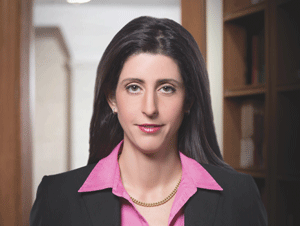Errors in the standard form used since 2010 to determine juror eligibility has some lawyers concerned improperly chosen juries could shake public confidence in the justice system.
 The concern also has some lawyers calling for much simpler language as the best way to fix the problem even as the Ministry of the Attorney General says it’s correcting the forms.
The concern also has some lawyers calling for much simpler language as the best way to fix the problem even as the Ministry of the Attorney General says it’s correcting the forms.
“It creates a situation where you do have people filling out the forms saying they qualify for jury membership in good faith but, in fact, under the act they would not [qualify],” says criminal lawyer Scott Bergman of Cooper Sandler Shime & Bergman LLP.
“That has the potential to undermine the public’s confidence in the jury system and it raises questions about fairness of jury verdicts. It’s a very legitimate concern.”
The province’s juror eligibility forms provide that for the most part, anyone with a criminal record isn’t eligible for jury duty save a list of about 20 offences. That list includes several offences that the eligibility forms state are acceptable for a candidate to still be able to serve as a juror. However, three of those listed acceptable offences do in fact bar potential candidates from serving, so people who have been correctly filling out the form since 2010 amendments to the Juries Act may have incorrectly served as jurors. Those amendments prohibited those convicted of hybrid offences from serving but in the meantime, at least three of the offences that don’t automatically disqualify someone have become hybrid offences: impersonating a police officer, committing an indecent act, and making indecent or repeated phone calls.
MPP Randy Hillier, the Progressive Conservative critic for the attorney general, says the errors and seeming lack of urgency to respond is an example of the government’s disregard for the justice system in general.
“My view is that this government has very little regard for its responsibility in the administration of justice,” he says. “This is just another further example. They’ve known about this problem for some period of time and they’ve not taken any steps, not even conceptual steps, to correct this.”
Brendan Crawley, a spokesman for the ministry, says it’s now taking steps to correct the errors.
“We are taking immediate action to address this discrepancy and are instituting additional processes to screen out any prospective jurors who are ineligible because of this change,” said Crawley.
Crawley noted there are a number of steps in place to establish a jury and the questionnaire is only the first step in it. When a court proceeding requires a jury, a jury panel is randomly selected from the jury roll for the local Superior Court of Justice location, Crawley explained. At that stage, an officer is authorized to randomly conduct criminal record checks on jury panel members. If any of them have convictions for an indictable or hybrid offence, their names are removed.
“I can tell you that there are provisions in the Criminal Code and the Juries Act that anticipate this type of circumstance,” said Crawley. “An oversight on eligibility or qualifications of jurors is not a ground for overturning a verdict.”
Bergman says that for recent jury trials, an objection during the proceedings would have to precede an appeal based on an improperly composed jury.
“One of the questions would have to be was there ever any issue at the actual trial where this was raised and an objection was raised,” he says. “If that was the case and the jurors remained on the jury panel, that is probably a more fruitful appeal. I suspect, though, if it’s found out after the fact, there’s not likely to be much success on appeal. I think the real way to cure this problem is not through the courts or even through an appeal route. The way to cure it is to clarify the form.”
Julianna Greenspan of Greenspan Partners LLP says she, too, would like to see simpler language in the forms.
“Start removing complicated language that only a lawyer would understand,” she says.
“The forms are flat-out wrong, and it will get fixed, but I doubt this [error] will cause a taint of juried trials. Still, what we want to make sure is that this does not happen again. . . . It shakes confidence.
“If you’re going to keep changing the Criminal Code, then you have to keep the jury questionnaire up to date as well and what we really need to know is where did this fail. My guess is we won’t see anyone who sat on a jury who fits into this problem, but the core issue is the system became flawed and now it needs to be fixed and that affects everybody.”
Greenspan says one issue with making a simpler form is that it might also mean that it needs to be longer, something that can also open the door to more errors.
Hillier would also like to see changes. “When you look at what is in front of us on this issue, I think we can easily determine that they’ve made what should be a simple form into a very complicated and convoluted form,” says Hillier. “The law, by and large, has become a very convoluted concept for the laypeople to understand, and I think that’s why it becomes incumbent upon the ministry to start speaking clearly and with brevity but in being concise with what they are looking for from a juror.”







